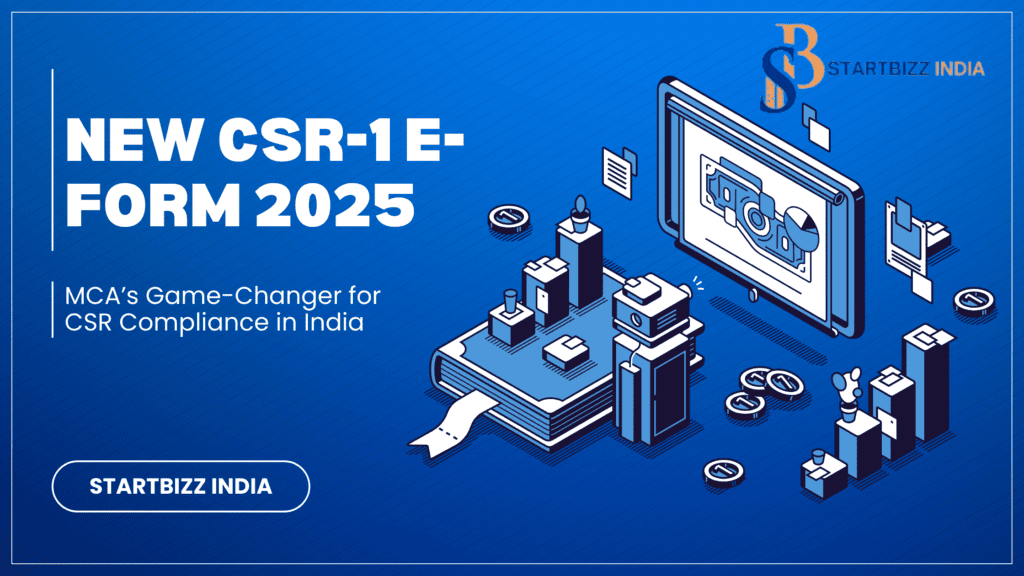Embark on your journey of social impact with StartBizzIndia.com – Your Trusted Partner for Trust Registration in India!
At StartBizzIndia.com, we offer a hassle-free, genuine, and affordable Trust Registration service in India, ensuring a seamless experience within just 5 days.
➔ Initial consultation to assess subsidiary registration requirements
➔ Assistance with company name reservation and registration
➔ Preparation and filing of incorporation documents
➔ Guidance on corporate governance and compliance obligations
➔ Support in obtaining necessary licenses and permits
➔ Regular updates on the incorporation process and timeline
➔ Provision of incorporation certificate and ongoing compliance support
Gain Access: Instant Quote & Free Expert Consultation with Just a Few Clicks
Streamlining Trust Registration in India
Embarking on the journey of Trust Registration is pivotal for individuals or entities aiming to establish trusts for noble causes such as advancing sciences, literature, education, healthcare, and more. Trusts play a vital role in mitigating scarcity, providing education to the underprivileged, extending medical aid, and contributing to societal well-being. At StartBizzIndia.com, we offer a hassle-free, genuine, and affordable Trust Registration service in India, ensuring a seamless experience within just 5 days.
Our dedicated team of experts provides comprehensive assistance, including consultation, Trust Deed drafting, application filing with the Trust Registrar, acquisition of PAN/TAN for the Trust, and diligent follow-up with relevant departments.
Understanding Trusts
Trusts are founded on fiduciary relationships between the trustor, trustee, and beneficiary. They involve establishing an entity to hold specific assets or property for the benefit of others. Governed by the Trusts Act of 1882, trust registration bestows legal validity and recognition upon the trust, establishing it as an independent entity with defined objectives and responsibilities.
Key Parties in Trust Registration
- Trustor: Initiates the establishment of the trust and transfers assets or property into it.
- Trustee: Manages and oversees the trust, administering its property for the beneficiary’s benefit.
- Beneficiary: Receives the benefits, assets, or property held within the trust as outlined in the trust deed.
Categories of Trusts in India
Trusts in India are categorized into:
- Public Trust: Established for the general public’s benefit, focusing on charitable, educational, and religious purposes.
- Private Trust: Established for specific individuals, families, or close associates.
- Public Cum-Private Trust: Serves both public and private purposes, benefiting a combination of individuals.
Regulatory Oversight and Legislation
Trust registration in India is regulated by various acts, including:
- Trusts Act of 1882: Governs the registration and administration of private trusts.
- Income Tax Act of 1961: Provides tax benefits and exemptions to registered trusts.
- Societies Registration Act of 1860: Regulates the formation and operation of charitable societies.
Importance of Trust Registration
Trust registration is crucial for:
- Regulatory Compliance: Ensures adherence to laws and regulations governing trust activities.
- Advancement of Non-Commercial Activities: Supports activities in arts, science, education, and the environment.
- Income Tax Benefits: Enables trusts to avail of tax exemptions under relevant sections of the Income Tax Act.
- Public Interest: Ensures alignment with the public’s best interests.
- Legal Authorization for Business Operations: Provides a legal license for conducting trust-related businesses.
- Contribution to Social Sectors: Facilitates development in education, healthcare, and social welfare.
Advantages of Trust Registration
- Charitable Engagement: Supports charitable causes and activities.
- Tax Exemptions: Provides tax benefits and exemptions to registered trusts.
- Financial Assistance: Offers essential financial support to the underprivileged and the public.
- Legal Safeguards: Ensures legal protection and legitimacy for trust activities.
- Family Wealth Management: Facilitates the preservation and management of family wealth.
- Probate Avoidance: Streamlines the asset distribution process without probate.
- Immigration/Emigration Benefits: Offers benefits during relocation, including tax mitigation and asset safeguarding.
Prerequisites for Trust Registration
To qualify for trust registration, certain conditions must be fulfilled, including:
- Minimum Number of Founders: Trust must be established by at least two or more individuals.
- Compliance with the Indian Trusts Act of 1882: The trust must adhere to the provisions specified in the act.
- Disqualification Status: None of the parties involved should be disqualified under any prevailing law in India.
- Conformity with Legal Objectives: The trust’s objectives must comply with existing laws in India.
- Fair and Just Conduct: Trust activities must be conducted in a fair and just manner.
- Alignment with Public Interest: The formation of the trust should not be contrary to public interest.
- Non-Harmful Activities: Trust activities must not cause harm to any individual.
- Consistency with Stated Objectives: Trust activities should align with the objectives outlined in the trust deed.
- Appropriately Drafted Trust Deed: The trust deed must be appropriately drafted, reflecting the genuine interests of the parties involved.
- Validity of Multiple Objectives: If the trust has more than two purposes, both purposes must be valid.
Components of a Trust Deed
A trust deed includes essential details and provisions governing a trust, such as:
- Operational Period
- Registered Office Address
- Geographical Scope
- Goals and Objectives
- Details of the Settlor
- Board of Trustees Information
- Roles, Responsibilities, and Powers of Trustees
- Amendment Procedures
- Legal Compliance Assurance
Documentation for Trust Registration
Documents required for trust registration include:
- Trust Deed
- Photographs
- PAN Cards
- Address Proof
- Identity Proof
- Authentication from Partners
- No Objection Certificate (NOC)
- Utility Bill
- Registered Office Address Proof
- Income Tax Certificates (12A Registration and 80G Certificates)
Procedure for Trust Registration
The process for trust registration involves:
- Choosing a Name for the Trust: Select a unique name that reflects the trust’s mission.
- Determining the Settlers of the Trust: Identify the founders who will initiate the trust.
- Preparing a Memorandum of Association (MOA): Draft the MOA outlining the trust’s purpose and operations.
- Drafting the Trust Deed: Prepare the trust deed with all necessary details and provisions.
- Submission to the Registrar: File the trust deed and other required documents with the Trust Registrar.
- Review by the Registrar: The registrar reviews the submission for compliance and validity.
- Issuance of Certificate of Trust Registration: Upon approval, receive the registration certificate.
Dissolution of a Trust
The dissolution of a trust occurs when all trust properties or assets are lawfully distributed to beneficiaries or a comparable entity. Proper handling of tax obligations and compliance with legal procedures is essential during the dissolution process.
How StartBizzIndia.com Can Assist in Securing Trust Registration
StartBizzIndia.com provides essential assistance in trust registration, ensuring compliance with legal requirements and facilitating a smooth process. Our team of experts offers consultation, guidance, and support at every stage of trust registration, ensuring a hassle-free experience for clients.
FAQs
What is Trust Registration?
Trust registration involves formally enrolling a trust under the Trusts Act of 1882, ensuring legal validity and recognition.
Who Can Establish a Trust?
Any individual or group of individuals can establish a trust for charitable, educational, religious, or other commendable causes.
What is the Purpose of Trust Registration?
Trust registration ensures compliance with legal obligations, regulatory oversight, and eligibility for tax benefits.
What Documents are Required for Trust Registration?
Documents required for trust registration include the trust deed, photographs, PAN cards, address proof, identity proof, and income tax certificates.
Can a Trust Have Both Public and Private Objectives?
Yes, a trust can serve both public and private purposes, benefiting a combination of public and private individuals.
How Long Does Trust Registration Take?
Trust registration typically takes around 5 days, subject to completion of all necessary documentation and approval from the registrar.
What Are the Tax Benefits of Trust Registration?
Registered trusts can avail tax exemptions and deductions under relevant sections of the Income Tax Act, encouraging donations and support for charitable activities.
Can a Trust Be Dissolved?
Yes, a trust can be dissolved when all trust properties or assets are lawfully distributed to beneficiaries or a comparable entity, complying with legal procedures.
Is Approval from Authorities Necessary for Trust Registration?
Yes, approval from the registrar is necessary for trust registration, ensuring compliance with legal requirements and regulations.
How Can StartBizzIndia.com Assist in Trust Registration?
StartBizzIndia.com offers consultation, guidance, and support at every stage of trust registration, ensuring compliance with legal requirements and a hassle-free experience for clients.
Start Your Trust Registration Journey with StartBizzIndia.com Today!
Empower your mission of social change and community upliftment with seamless trust registration services from StartBizzIndia.com. Our team of experts is dedicated to supporting you at every step, ensuring a smooth and successful registration process. Submit your details now to receive an instant all-inclusive quote and a FREE expert consultation. Let’s make a difference together!
Dividend Distribution by a Closely Held Private Limited Company — A Complete Guide by a Company Secretary
StartbizzindiaCorporate Law Advisor – StartBizzIndia Introduction One of the most common questions that arise in…
SEBI’s New Guidelines on Related Party Transactions: Complete Compliance Guide for Listed Companies
Startbizzindia1. Introduction Related Party Transactions have always been an area of intense regulatory focus in…
POSH (Sexual Harassment of Women at Workplace) Act: what every company must do, procedure to follow, and consequences of non-compliance
StartbizzindiaEvery workplace in India with 10 or more employees must prevent sexual harassment, set up…

RBI FIRMS Portal Update 2025: What Indian Businesses Must Know
StartbizzindiaThe Reserve Bank of India (RBI) has introduced significant enhancements to the FIRMS portal, effective…

PRAVAAH & FIRMS Portal 2025: Unlocking India’s Digital Compliance Revolution
StartbizzindiaIndia is witnessing a digital compliance revolution that’s transforming how businesses engage with regulators. With…

New CSR-1 e-Form 2025: MCA’s Game-Changer for CSR Compliance in India
StartbizzindiaNew CSR-1 e-Form 2025: MCA’s Game-Changer for CSR Compliance in India The Ministry of Corporate…
